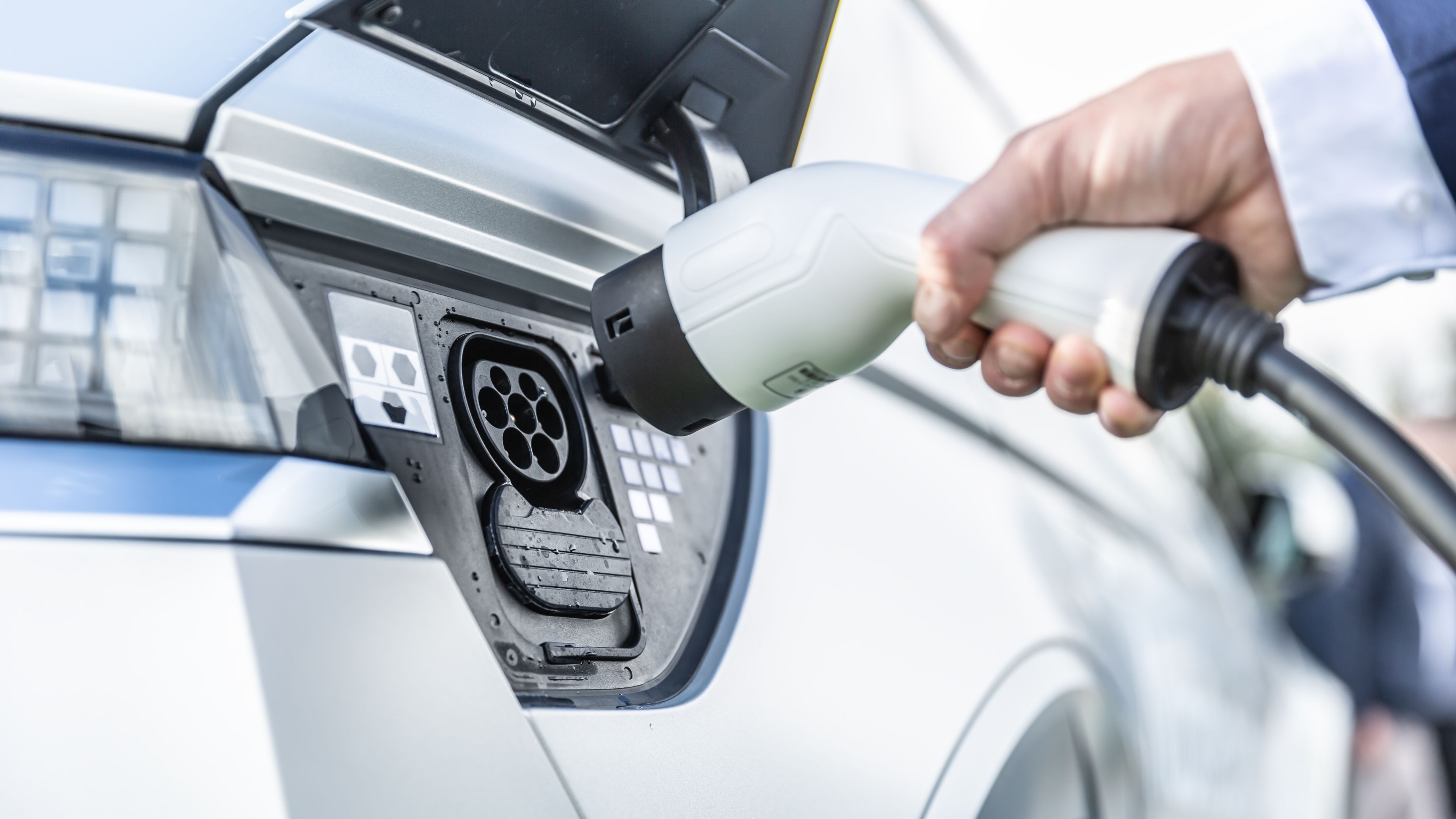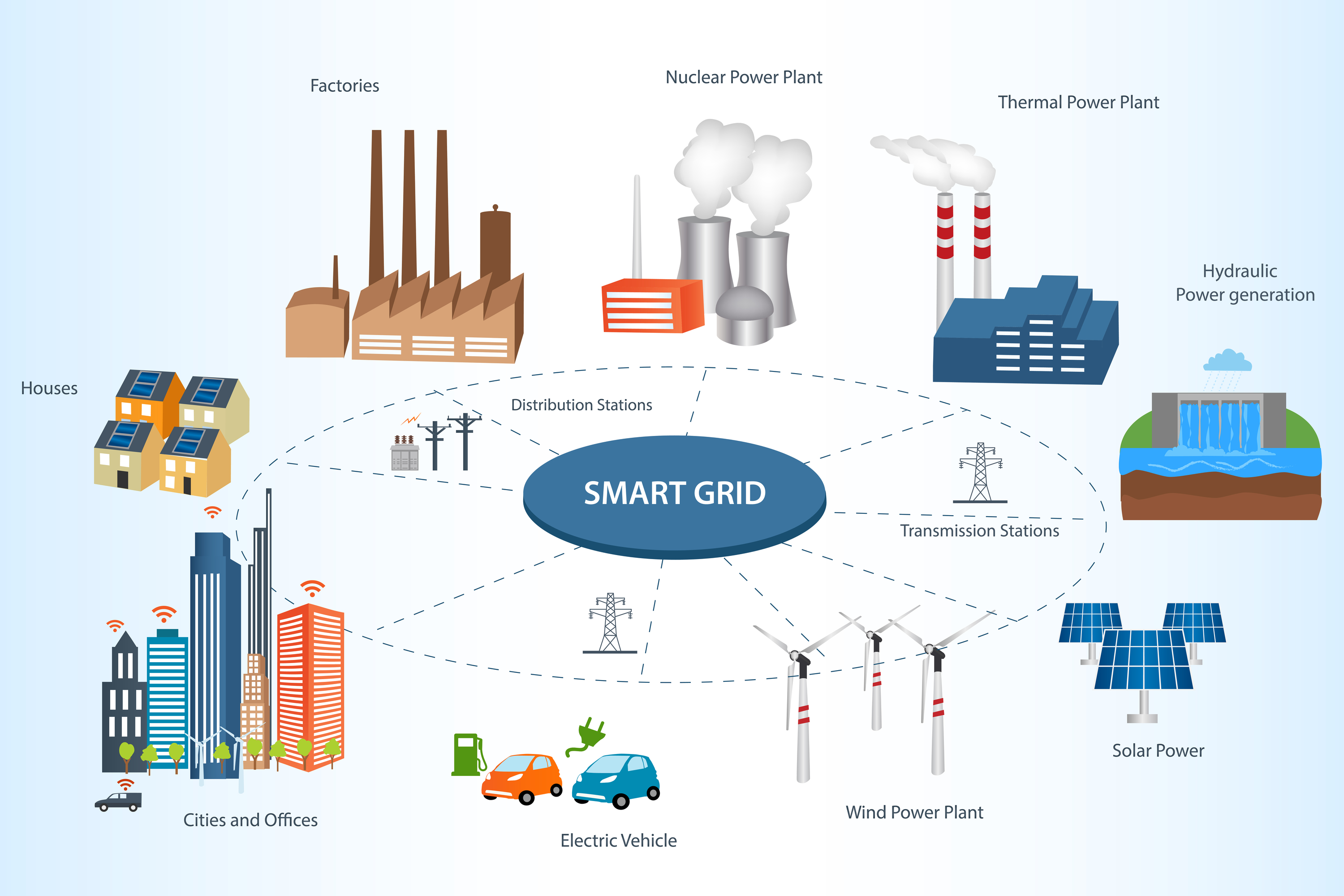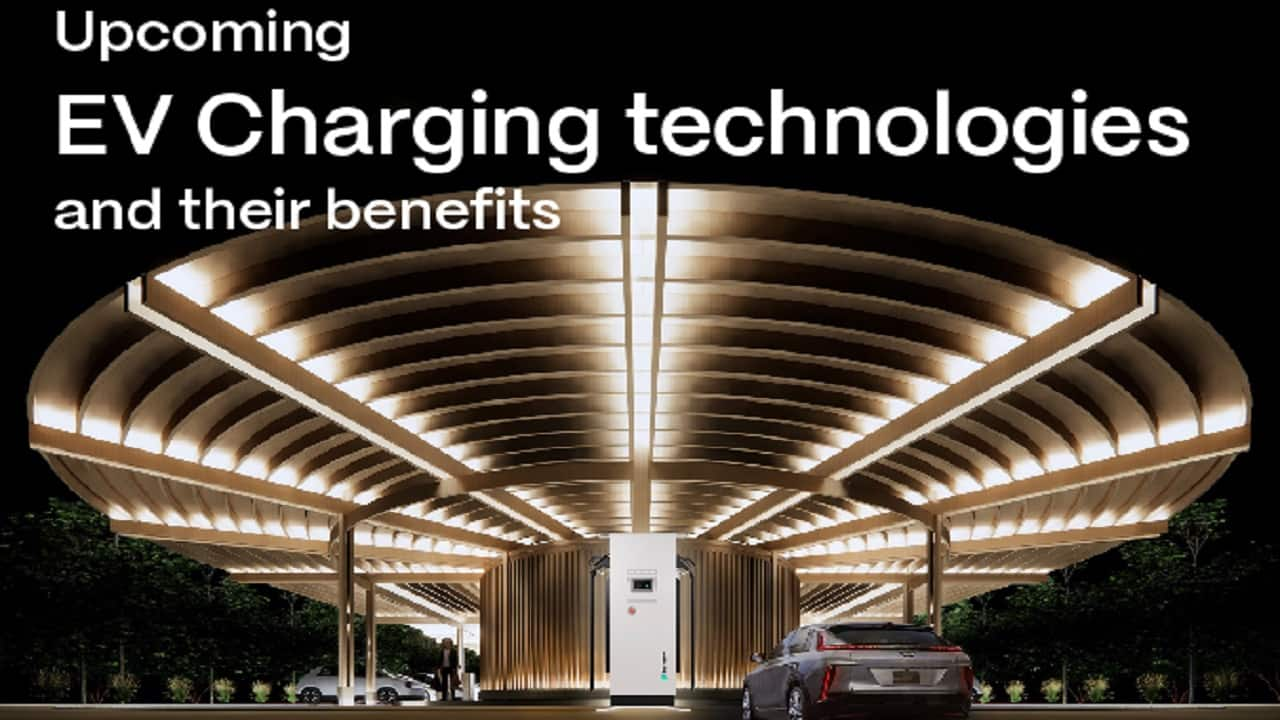Unlocking the Potential of Machine Learning in EV Charging
Machine learning is transforming the electric vehicle (EV) charging landscape by optimizing efficiency, reducing costs, and enhancing the overall charging experience. By analyzing data from various sources, such as charging stations, vehicles, and the grid, machine learning algorithms can identify patterns and make predictions that inform charging decisions. This enables EV charging operators to optimize their networks, reduce energy waste, and improve customer satisfaction.
One of the key benefits of machine learning in EV charging is its ability to analyze large datasets and identify trends that may not be apparent through traditional analysis. For example, machine learning algorithms can analyze data on energy demand, weather patterns, and traffic flow to predict when and where EVs are likely to be charged. This enables charging operators to adjust their pricing and charging strategies to meet demand, reducing the strain on the grid and minimizing energy waste.
Machine learning can also be used to optimize the charging process itself. By analyzing data on EV battery health, charging speed, and energy efficiency, machine learning algorithms can identify the optimal charging strategy for each vehicle. This can help to extend the life of EV batteries, reduce charging times, and improve overall efficiency.
The integration of machine learning into EV charging systems is also enabling the development of new business models and services. For example, some companies are using machine learning to offer dynamic pricing and charging plans that adjust to changing energy demand and grid conditions. Others are using machine learning to develop predictive maintenance and repair services that can help to reduce downtime and improve overall efficiency.
As the EV market continues to grow, the potential for machine learning to transform the charging landscape is vast. By optimizing efficiency, reducing costs, and enhancing the overall charging experience, machine learning can help to drive the widespread adoption of EVs and support the transition to a more sustainable transportation system.
How to Leverage Predictive Analytics for Smart Charging
Predictive analytics plays a crucial role in machine learning for electric vehicle charging, enabling charging operators to forecast energy demand, identify optimal charging times, and adjust to changing grid conditions. By analyzing historical data and real-time inputs, predictive models can identify patterns and trends that inform charging decisions, reducing energy waste and improving overall efficiency.
Companies like Tesla and ChargePoint are already leveraging predictive analytics to optimize their charging networks. For example, Tesla’s predictive analytics platform uses machine learning algorithms to forecast energy demand and adjust charging rates in real-time, reducing strain on the grid and minimizing energy waste. Similarly, ChargePoint’s predictive analytics platform uses data from its charging network to identify optimal charging times and adjust pricing accordingly, reducing energy costs for drivers and improving overall efficiency.
Predictive analytics can also be used to optimize charging schedules, reducing peak demand on the grid and minimizing energy waste. By analyzing data on energy demand, weather patterns, and traffic flow, predictive models can identify the optimal charging schedule for each vehicle, reducing strain on the grid and improving overall efficiency.
In addition to optimizing charging schedules, predictive analytics can also be used to improve the overall charging experience. By analyzing data on driver behavior, charging patterns, and vehicle performance, predictive models can identify opportunities to improve the charging experience, such as optimizing charging speed, improving charging reliability, and enhancing customer support.
As the electric vehicle market continues to grow, the importance of predictive analytics in machine learning for electric vehicle charging will only continue to increase. By leveraging predictive analytics, charging operators can optimize their networks, reduce energy waste, and improve overall efficiency, driving the widespread adoption of electric vehicles and supporting the transition to a more sustainable transportation system.
Real-World Applications of Machine Learning in EV Charging
Machine learning is being increasingly applied in electric vehicle charging to optimize charging processes, improve efficiency, and enhance the overall charging experience. One of the most promising applications of machine learning in EV charging is the use of reinforcement learning to optimize charging schedules. By analyzing data on energy demand, weather patterns, and traffic flow, reinforcement learning algorithms can identify the optimal charging schedule for each vehicle, reducing strain on the grid and minimizing energy waste.
Another example of machine learning in EV charging is the application of natural language processing to improve customer support. By analyzing data on customer interactions, natural language processing algorithms can identify patterns and trends that inform customer support strategies, improving customer satisfaction and reducing support costs. For instance, EV-Box, a leading EV charging company, uses natural language processing to analyze customer feedback and improve its charging services.
Machine learning is also being used to optimize charging station operations, reducing downtime and improving overall efficiency. By analyzing data on charging station performance, machine learning algorithms can identify potential issues before they occur, enabling proactive maintenance and reducing downtime. For example, ChargePoint, a leading EV charging network, uses machine learning to analyze data on charging station performance and optimize its maintenance schedules.
In addition to these applications, machine learning is also being used to improve the overall charging experience. By analyzing data on driver behavior, charging patterns, and vehicle performance, machine learning algorithms can identify opportunities to improve the charging experience, such as optimizing charging speed, improving charging reliability, and enhancing customer support.
These real-world applications of machine learning in EV charging demonstrate the potential of this technology to transform the electric vehicle charging landscape. By optimizing charging processes, improving efficiency, and enhancing the overall charging experience, machine learning can drive the widespread adoption of electric vehicles and support the transition to a more sustainable transportation system.
Overcoming Challenges in Implementing Machine Learning for EV Charging
While machine learning has the potential to transform the electric vehicle charging landscape, there are several challenges associated with its implementation. One of the primary challenges is data quality issues, as machine learning algorithms require high-quality data to produce accurate results. To overcome this challenge, companies can use data preprocessing techniques, such as data cleaning and feature engineering, to improve the quality of their data.
Another challenge associated with implementing machine learning in EV charging is scalability concerns. As the number of electric vehicles on the road increases, the amount of data generated by these vehicles will also increase, requiring more powerful computing resources to process. To overcome this challenge, companies can use cloud-based infrastructure, such as Amazon Web Services or Microsoft Azure, to scale their machine learning operations.
In addition to data quality and scalability concerns, there is also a need for specialized expertise in machine learning. Implementing machine learning in EV charging requires a deep understanding of machine learning algorithms, data science, and software development. To overcome this challenge, companies can collaborate with machine learning experts, either by hiring them directly or by partnering with companies that specialize in machine learning.
Finally, there are also challenges associated with integrating machine learning with existing EV charging infrastructure. To overcome this challenge, companies can use application programming interfaces (APIs) to integrate their machine learning systems with existing charging infrastructure, enabling seamless communication and data exchange between different systems.
Despite these challenges, the benefits of implementing machine learning in EV charging far outweigh the costs. By overcoming these challenges, companies can unlock the full potential of machine learning and transform the electric vehicle charging landscape. With the right expertise, infrastructure, and data, machine learning can help to optimize charging processes, improve efficiency, and enhance the overall charging experience.
Future Directions for Machine Learning in EV Charging
As the electric vehicle charging landscape continues to evolve, machine learning will play an increasingly important role in optimizing charging processes, improving efficiency, and enhancing the overall charging experience. One of the most promising future directions for machine learning in EV charging is the integration of emerging technologies like blockchain, IoT, and edge computing.
Blockchain technology, for example, has the potential to enhance the security and transparency of EV charging transactions. By using blockchain to record and verify charging transactions, companies can ensure that data is accurate, secure, and tamper-proof. This can help to build trust among EV owners, charging station operators, and grid managers, and can facilitate the widespread adoption of electric vehicles.
IoT technology, on the other hand, can help to optimize charging processes by enabling real-time communication between EVs, charging stations, and the grid. By using IoT sensors and devices to monitor and control charging processes, companies can optimize energy usage, reduce energy waste, and improve overall efficiency.
Edge computing is another emerging technology that has the potential to transform the EV charging landscape. By processing data at the edge of the network, rather than in the cloud, companies can reduce latency, improve real-time processing, and enhance the overall charging experience.
These emerging technologies have the potential to revolutionize the EV charging landscape, and machine learning will play a critical role in their development and deployment. By integrating machine learning with blockchain, IoT, and edge computing, companies can create a more efficient, secure, and sustainable EV charging ecosystem.
As the EV charging landscape continues to evolve, it is clear that machine learning will play an increasingly important role in optimizing charging processes, improving efficiency, and enhancing the overall charging experience. By embracing emerging technologies like blockchain, IoT, and edge computing, companies can create a more sustainable, efficient, and customer-centric EV charging ecosystem.
Key Players in the Machine Learning for EV Charging Space
Several companies are leading the charge in the machine learning for electric vehicle charging space. EV-Box, a leading EV charging company, is using machine learning to optimize its charging network and improve the overall charging experience. The company’s machine learning algorithms analyze data from various sources, including charging stations, vehicles, and the grid, to identify patterns and trends that inform charging decisions.
NewMotion, another leading EV charging company, is also using machine learning to optimize its charging network. The company’s machine learning algorithms analyze data on energy demand, weather patterns, and traffic flow to identify optimal charging times and adjust to changing grid conditions.
Greenlots, a leading provider of EV charging software, is using machine learning to optimize charging processes and improve the overall charging experience. The company’s machine learning algorithms analyze data from various sources, including charging stations, vehicles, and the grid, to identify patterns and trends that inform charging decisions.
These companies, along with others, are driving innovation in the machine learning for EV charging space. By leveraging machine learning algorithms and techniques, they are able to optimize charging processes, improve efficiency, and enhance the overall charging experience.
Other key players in the machine learning for EV charging space include companies like ChargePoint, which is using machine learning to optimize its charging network and improve the overall charging experience. ChargePoint’s machine learning algorithms analyze data from various sources, including charging stations, vehicles, and the grid, to identify patterns and trends that inform charging decisions.
These companies are leading the way in the machine learning for EV charging space, and their innovations are driving the widespread adoption of electric vehicles. By leveraging machine learning algorithms and techniques, they are able to optimize charging processes, improve efficiency, and enhance the overall charging experience.
Best Practices for Implementing Machine Learning in EV Charging
Implementing machine learning in electric vehicle charging requires careful consideration of several factors, including data quality, algorithm selection, and model training. To ensure successful implementation, companies should follow best practices, including the importance of data quality, the need for continuous monitoring and evaluation, and the benefits of collaboration with machine learning experts.
Data quality is critical to the success of machine learning in EV charging. Companies should ensure that their data is accurate, complete, and relevant to the problem they are trying to solve. This may involve data preprocessing techniques, such as data cleaning and feature engineering, to prepare the data for use in machine learning models.
Algorithm selection is also important, as different algorithms are suited to different problems. Companies should select algorithms that are well-suited to their specific use case, and should consider factors such as model complexity, interpretability, and scalability.
Model training is another critical aspect of machine learning in EV charging. Companies should ensure that their models are trained on high-quality data, and should use techniques such as cross-validation and hyperparameter tuning to optimize model performance.
Continuous monitoring and evaluation are also essential to the success of machine learning in EV charging. Companies should regularly monitor their models’ performance, and should evaluate their effectiveness in achieving their desired outcomes.
Collaboration with machine learning experts is also beneficial, as they can provide valuable insights and expertise in implementing machine learning solutions. Companies should consider partnering with machine learning experts, or hiring them as employees, to ensure that their machine learning solutions are implemented effectively.
Examples of companies that have successfully implemented machine learning in their EV charging operations include EV-Box, NewMotion, and Greenlots. These companies have used machine learning to optimize their charging networks, improve the overall charging experience, and reduce energy waste.
Conclusion: The Future of Electric Vehicle Charging with Machine Learning
In conclusion, machine learning has the potential to transform the electric vehicle charging landscape by optimizing charging processes, improving efficiency, and enhancing the overall charging experience. By leveraging machine learning algorithms and techniques, companies can optimize their charging networks, reduce energy waste, and improve customer satisfaction.
The future of electric vehicle charging with machine learning is bright, with emerging technologies like blockchain, IoT, and edge computing set to play a major role in shaping the industry. As the demand for electric vehicles continues to grow, the need for intelligent charging solutions will become increasingly important.
Companies like EV-Box, NewMotion, and Greenlots are already leading the way in the machine learning for EV charging space, and their innovations are driving the widespread adoption of electric vehicles. By following best practices, such as ensuring data quality, continuously monitoring and evaluating model performance, and collaborating with machine learning experts, companies can unlock the full potential of machine learning in EV charging.
As the industry continues to evolve, it is clear that machine learning will play an increasingly important role in shaping the future of electric vehicle charging. By investing in machine learning research and development, companies can stay ahead of the curve and drive innovation in the industry.
In summary, machine learning has the potential to transform the electric vehicle charging landscape, and companies that invest in this technology will be well-positioned to drive innovation and growth in the industry. By following best practices and staying up-to-date with the latest developments in machine learning, companies can unlock the full potential of this technology and create a more efficient, sustainable, and customer-centric EV charging ecosystem.







